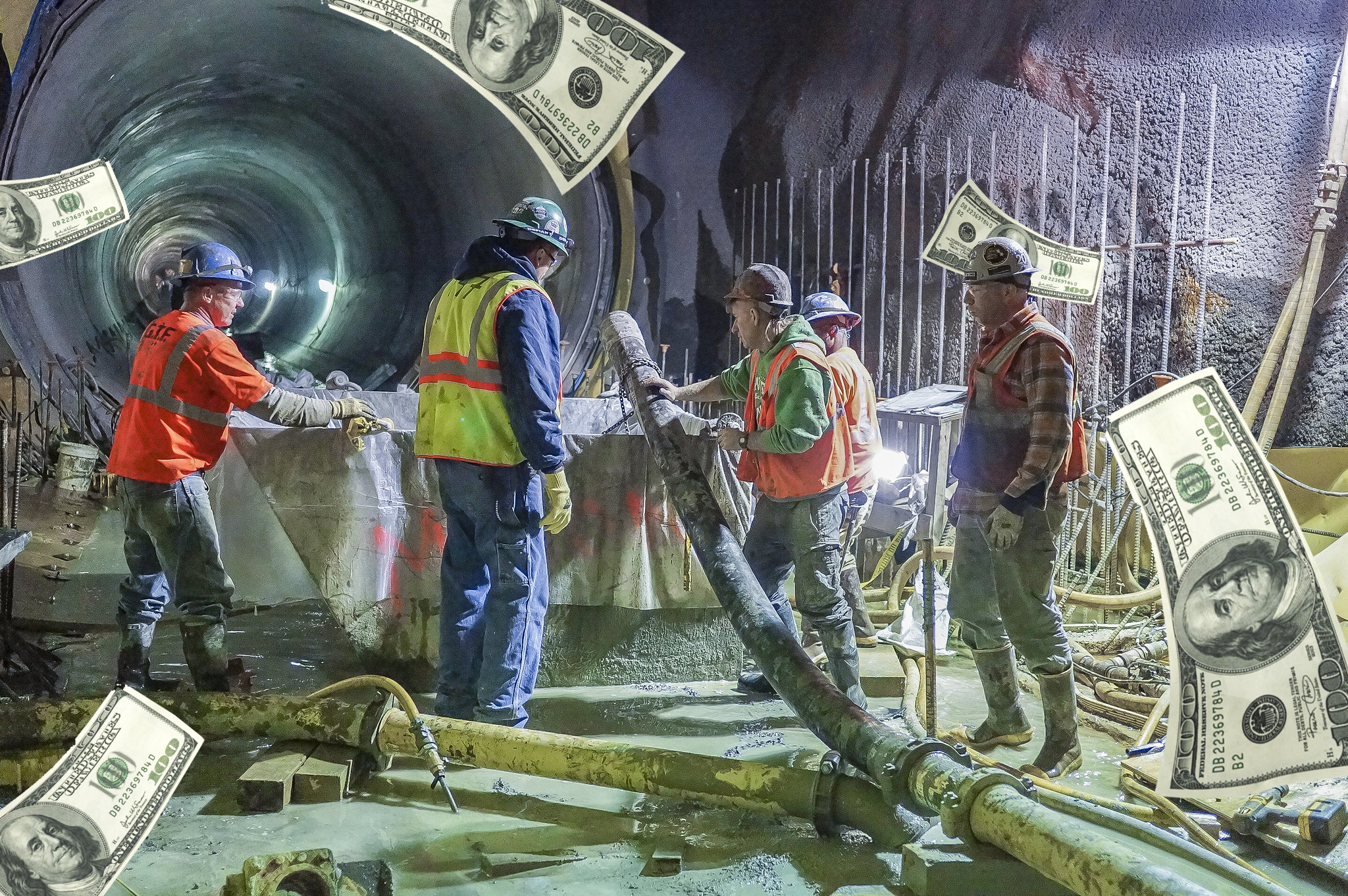Here's another reason for wavering lawmakers to to support congestion pricing: Ka-ching!
The MTA spent nearly $26 billion to New York State companies in just the nine years between 2014 and 2022 — and congestion pricing will allow for more capital spending across the state that will both enrich local economies and maintain a transit system that is the economic lifeblood of the New York City region, a new report from Reinvent Albany shows.
The study of MTA spending follows prior research showing that agency spending is good for the nation and even New Jersey, which nonetheless opposes congestion pricing.
The latest report reveals significant mouth-gazing from some local pols at the gift horse that is congestion pricing.
For instance, Rep. Nicole Malliotakis (R-Staten Island) opposes congestion pricing, yet MTA capital spending has poured $530 million into companies in her district over the nine years in the study period. That includes $21.6 million to a humble elevator company and $15.5 million to a lubrication maker.
Malliotakis did not respond to a request for comment about her opposition to the central business tolling scheme.
The Staten Island Republican's district is not nearly the greatest recipient of MTA spending, however. According to the report, every state Senate and congressional district (and 147 of the 150 Assembly districts) in the state have benefitted districts from MTA spending.
That includes $790 million spent in the upstate district of Rep. Elise Stefanik (who has declined to respond to questions from Streetsblog about congestion pricing), $1.44 billion spent in the Long Island district of Rep. Andrew Garbarino (a congestion pricing foe) and $1.65 billion in the Hudson Valley district of Rep. Mike Lawler (a congestion pricing foe).
The MTA has spent just under $5 billion in the four congressional districts that comprise Long Island. All four of those reps — Garbarino, George Santos, Anthony D'Esposito and Nicholas LaLota — oppose congestion pricing
"Our comprehensive analysis of the amount spent by the MTA on vendors statewide emphasizes the future role of congestion pricing as a contributor to the state’s economy beyond New York City," Reinvent Albany said in a statement. "We hope that readers — including policy-makers, urban planners, and transit advocates — will find this information helpful in understanding the far-reaching implications of the MTA’s spending."






